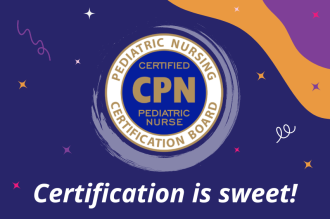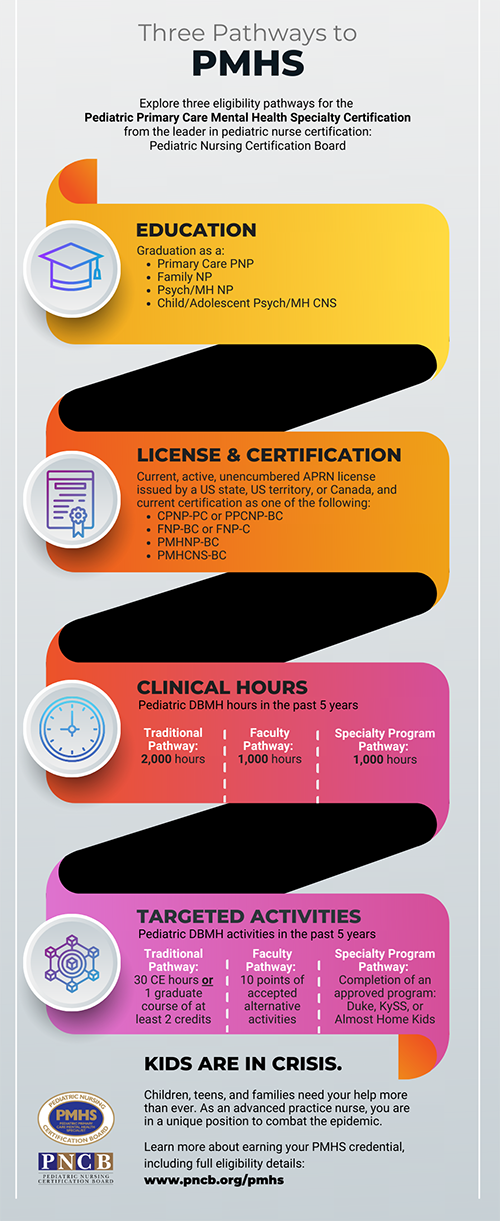Two New PMHS Exam Pathways: Faculty & Specialty Program Eligibility
PNCB listened to faculty and other advanced practice nurses who want to earn the Pediatric Primary Care Mental Health Specialty (PMHS) credential but currently do not have the required number of clinical hours to apply for this exam.
Because we must have valid criteria for an accredited exam’s eligibility, PNCB commissioned a study through a leading research firm to explore alternate eligibility criteria for the PMHS exam.
Based on our findings, we will offer two new eligibility pathways in the future that require only 1,000 clinical hours of pediatric developmental, behavioral, and mental health care (DBMH) completed within 5 years of applying:
- Academic Faculty Pathway: 1,000 DBMH clinical hours plus 10 points of accepted alternative activities (points come from: teaching, precepting, scholarly projects, CE/CME, and/or academic credit).
- Specialty Program Pathway: 1,000 DBMH clinical hours plus completion of an approved program (KySS Online Mental Health Fellowship: Child and Adolescent, Duke Pediatric Behavioral and Mental Health Specialty, or APRN Scholars Program at Almost Home Kids).
Q: What are full eligibility criteria for each pathway?
A: The graphic below shares details for all 3 pathways.
Q: When will the new pathways open?
A: PNCB will be working to implement the operational changes and keep you updated on the launch timeline.
Q: As a faculty member, am I only eligible for the academic faculty pathway?
A: No. the faculty pathway is a new/different option to meet eligibility criteria. If you also meet criteria another PMHS eligibility pathway, you can decide which to choose.
Q: Will a PMHS pathway open for acute care pediatric nurse practitioners (PNPs)?
A: Not at this time. In spring 2022, CPNP-ACs were invited to participate in PNCB's PMHS Job Task Analysis Extension Study. Findings demonstrated that practice patterns of acute care PNPs were varied with respect to the performance of specific PMHS tasks; the evidence overall suggests that as a population, the practice of acute care PNPs providing care to children with DBMH conditions is different than that of primary care PNPs.
Based on the data, PNCB will study the feasibility of offering a separate competency program to meet the needs of nurse practitioners who care for children with chronic, complex, or acute conditions overlaid with DBMH co-morbidities. Learn more.
Again, we will keep you updated. If you already hold PMHS, we invite you to share this announcement with your network. Please reach out with any questions to exam@pncb.org.




